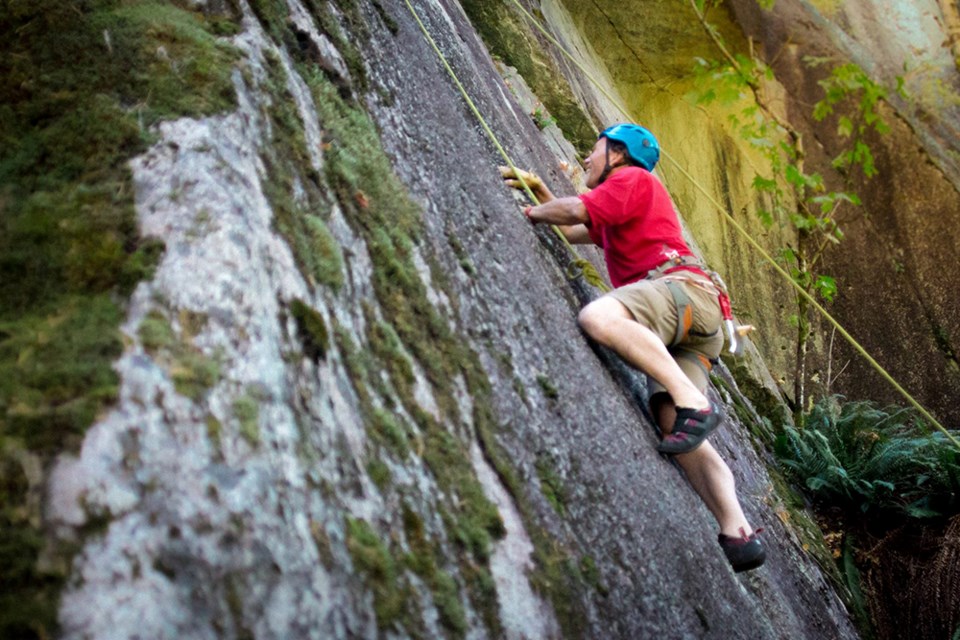Rock climbing is out of reach for a significant proportion of people.
It’s too esoteric and exclusive with too many barriers to entry, but this doesn’t necessarily have to be the case.
At least that’s not how Brent Goodman, the driving force behind the Canadian Adaptive Climbing Society (CACS), sees it. The CACS is bringing the befits of climbing to people with disabilities.
“I think there’s a lot of work to be done to educate on accessibility and inclusion. And I think that there’s a lot I can do in the community,” explains Goodman, who first began thinking about creating such an organization around two years ago, and has since been putting the pieces in place.
The CACS works to create quality adaptive experiences for people who have epilepsy, cerebral palsy, traumatic brain injuries or other disabilities.
It started with Goodman’s energy in Squamish and is beginning to reach the climbing community throughout the Lower Mainland and across Canada.
The CACS program runs out of gyms and outdoors climbing areas. Every participant has different needs and, subsequently, a different rope system to keep them secure or aid their upwards progress where required.
Goodman is someone who knows first-hand how climbing can impact people’s lives. He is a long-time climber himself and has obtained certification with the Association of Canadian Mountain Guides and worked with Power to Be, a not-for-profit organization that runs adaptive recreation programs.
Goodman has seen and felt the empowering effects of progression in the vertical world. His eyes grow wide as he describes the impact on the people who are coming through his program.
Lucy Goncalves lives with severe cerebral palsy and is always fighting the muscles in her body, even with speech.
“The first time she tried climbing was a pretty fantastic experience to be a part of,” says Goodman.
“We could tell right away that she was determined to make it up to the anchor and was not coming down until then. Every movement is a battle between her brain and her muscle fibres, and she works extremely hard for every centimetre of progress upward.”
Goodman recounts Goncalves’s first time climbing. Sometimes, he explains, she would pause for a break and the facilitators would yell up to her, asking if she was ready to come down, to which Goncalves would respond, “No Way!”
“I don’t think I’d ever seen anyone work that hard before,” says Goodman.
“But the best part is that she comes back every program we offer, and together we continue to improve the [rope] system for her so that every inch upward is hers to earn.”
The CACS is partnered with climbing gyms in the Lower Mainland, including Squamish’s Ground Up Climbing Centre. They’re also working with Paradox Sports, a similarly oriented organization out of the United States, and Canada West Mountain School, which provides guides and technical support.
One of the pieces Goodman is pulling together right now is a procedures manual that is intended to reach gyms across Canada and help to make facilities and programs more inclusive.
Keep an eye out this summer for Goodman and the CACS around Squamish, in the climbing gym, in the Smoke Bluffs and on the Chief.
Goodman is on a mission to allow more people to access the vertical world.
“Each time you meet and go out climbing with individuals, you can improve the experience and allow it to become more authentic,” he says.
The experience of climbing is powerful, particularly for those who face a barrier to accessing it and who would otherwise not be able to reap its benefits.




